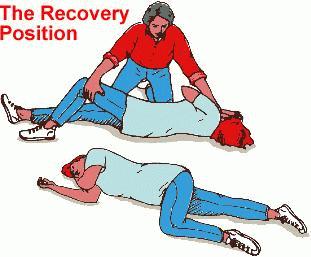African-American Celebrities Talk About Epilepsy
This press release is a little dated, but I still think the information is relevant.
Epilepsy Foundation Raises Awareness of Epilepsy during National Epilepsy Awareness Month!
WASHINGTON, D.C. — This November, the Epilepsy Foundation encourages the African-American Community to help dispel the myths and misperceptions about the condition during National Epilepsy Awareness Month by talking about epilepsy. More than 350,000 African-Americans have epilepsy—another 24,000 will be diagnosed this year. Yet, epilepsy remains one of the most misunderstood of all medical conditions within the African American Community.
Epilepsy, a neurological condition, characterized by seizures, affects nearly 3 million Americans, but is especially prevalent within the African-American Community. For many African-Americans living with epilepsy, access to appropriate care is but one of the numerous problems they face. In addition to the issues of medical care they are subject to discrimination imposed by people who don’t know the truth about epilepsy.
“We are encouraging Africans-American living with epilepsy to share their stories during National Epilepsy Awareness Month,” said Eric R. Hargis, president and CEO of the Epilepsy Foundation. “Talking about epilepsy will empower those impacted by the condition to speak out without shame and educate those that don’t understand the condition.”
During November, the Epilepsy Foundation is using social networking Web sites like Facebook, Twitter, and the Foundation’s own eCommunities to educate people about epilepsy and demonstrate the power of personal stories. Parents, friends, family and caregivers are encouraged to talk about epilepsy by “tweeting” what epilepsy means to them, updating their status on Facebook with a message about epilepsy or creating a 60-second video sharing their personal story of epilepsy.
“As a person with epilepsy and living out my dreams, any chance I get to talk or attend an event, I’m willing to do it. It’s an honor to be in the situation that I am in, to help spread awareness and to help anybody in any way that I can,” said Jason Snelling, Atlanta Falcons running back. “I’ve been part of the National Epilepsy Walk and the Epilepsy Foundation. I enjoy speaking out and trying to spread awareness for something that is really put on the back burner. It’s something that a lot of people deal with every day.”
Snelling is one example of the many celebrities raising awareness of epilepsy by talking about their personal experiences. Rock star, Prince, recently revealed that he experienced seizures as a child and was picked on frequently. He said as a result he decided to be as flashy and loud as he could be. Distinguished actor, Danny Glover and Baltimore Ravens corner back, Samari Rolle both have shared their personal stories of epilepsy.
With programs and services ranging from summer camps to legal services and employment support, the Epilepsy Foundation is working to ensure that people with seizures are able to participate in all life experiences. Resources are available to educate first responders, caregivers, school nurses, seniors, youth and parents about the condition.
In 1969, November was declared National Epilepsy Awareness Month as a part of a nationwide epilepsy public education campaign. Since that date, the observance has been recognized in most years by a White House message from the President. In 2003, the U.S. Congress passed a formal resolution declaring November as National Epilepsy Awareness Month.
About Epilepsy
Epilepsy is a serious neurological condition that affects more than 3 million Americans and 50 million people worldwide. The condition produces seizures, which can range from a momentary disruption of the senses, to short periods of unconsciousness or staring spells, to convulsions. A seizure happens when a brief, strong surge of electrical activity affects part or all of the brain. When a person has two or more unprovoked seizures, they are considered to have epilepsy. Currently there is no cure for epilepsy; however, more than half of people with epilepsy are able to control seizures with existing treatment options.
About the Epilepsy Foundation
The Epilepsy Foundation, a national non-profit with affiliated organizations throughout the United States, has led the fight against epilepsy since 1968. The Foundation’s goals are to ensure that people with seizures are able to participate in all life experiences; and prevent, control and cure epilepsy through services, education, advocacy and research, so not another moment is lost to seizures. For additional information, please visit www.epilepsyfoundation.org.
(source: PR Log)
Related Links
Epilepsy Ontario– Epilepsy in Africa and the African American community
Epilepsy Foundation– Epilepsy in African Americans
Ning community– Epilepsy Foundation

